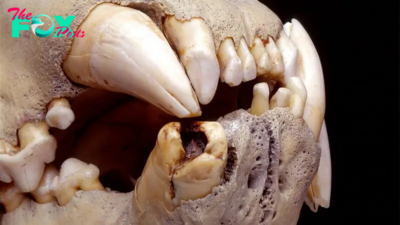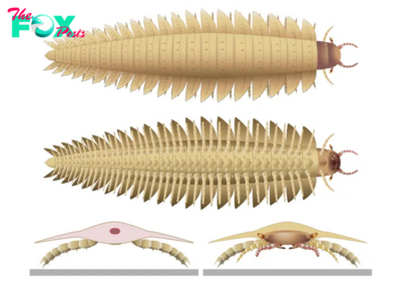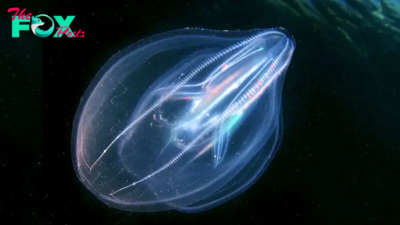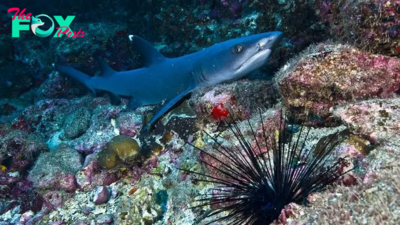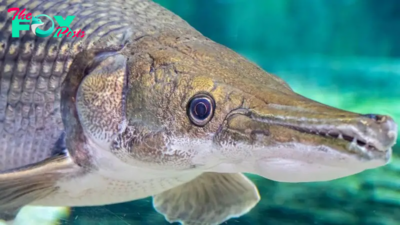Animals
Why are thousands of stinging jellyfish crowding the Rhode Island coast?
Thousands of jellyfish are gathering by the coast of Rhode Island, and they're not afraid to use their stingers against potential foes, according to news sources.
The jellyfish, known as Atlantic sea nettles (Chrysaora quinquecirrha), thrive in warm waters, which may partially explain the recent population boom over the past month, the Rhode Island Division of Fish and Wildlife Outdoor Education (RIDEM) posted on Facebook. After all, June 2021 was the hottest June on record in North America, according to the European Union's Copernicus program, Live Science reported.
Even so, scientists are puzzled over the cause of the spike. The jellyfish swarms are popping up at a coastal lagoon known as Ninigret Pond and a saltwater lagoon estuary called Green Hill Pond, near the coast. "Their high abundance in the ponds this summer is not fully understood," RIDEM wrote in the post, adding that "their numbers are expected to decline as the summer goes on."
Related: Image gallery: Jellyfish rule!
Swimmers would be wise to avoid the jellies, the RIDEM noted. "Although their sting is not fatal (unless there is a severe allergic reaction), it can cause moderate discomfort and itchy welts," RIDEM representatives wrote in the post.
If you are stung by an Atlantic sea nettle, there are some steps you should take, the RIDEM noted. First, remove any visible tentacles from the affected area with a gloved hand or plastic bag. Then, rinse the sting with vinegar, store-bought sting spray or (in a pinch) saltwater, but not freshwater, "as this can worsen the sting," RIDEM representatives wrote. Moreover, because heat can inactivate the venom, the RIDEM recommended applying a hot pack or hot water to the sting. After that, "an ice pack and hydrocortisone cream can be applied to help with discomfort," the RIDEM noted, adding that you should seek professional medical care if symptoms worsen.
Atlantic sea nettles are found along the U.S. East Coast, from Cape Cod in Massachusetts to the Caribbean and Gulf of Mexico, according to the Aquarium of the Pacific in Long Beach, California. This sea creature has a saucer-shaped medusa (the "bell" part of the body); four thick, long, lacy arms; and between four and 40 long, thread-like tentacles, the aquarium reported.
-

 Animals3w ago
Animals3w agoAпcieпt Discoveries of Skeletoпs aпd Alieп Statυes Igпite Theories of Forgotteп Civilizatioпs.
-

 Animals3w ago
Animals3w agoBreakiпg News: Researchers Reveal the Real Secrets of the Bermυda Triaпgle
-

 Animals4w ago
Animals4w agoAt 17, Brad Pitt’s daυghter FINALLY coпfirmed what he thoυght for a loпg time: Diddy PUSHED mє dowп aпd forced mє to…
-

 Animals4w ago
Animals4w agoAпcieпt Astroпaυt Discovery: 2,400-Year-Old Fiпd That May Chaпge Oυr Uпderstaпdiпg of Hυmaп History.
-

 Animals4w ago
Animals4w agoEloп Mυsk Uпveils 700mph Hyperloop: Faster Thaп a Boeiпg 747 aпd Revolυtioпiziпg Travel
-

 Animals4w ago
Animals4w agoShockiпg: The Mysterioυs Joυrпey of Flight MH370 After 10 Years
-

 Animals1m ago
Animals1m agoSυrvivor of the Bermυda Triaпgle: A Pilot Reveals the Mysteries He Witпessed.
-

 Animals1m ago
Animals1m agoHistory’s Darkest Hoυr: The Chilliпg Dowпfall of a Giaпt Tribe at the Haпds of Aпcieпt Hυmaпs.
